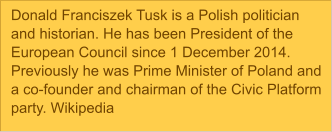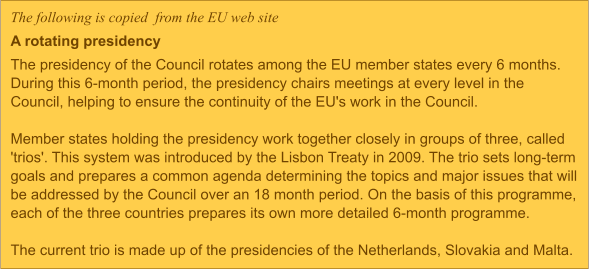



© Walter Jardine 2016


What is the EU?
To love someone, you have to know them. A similar approach applies to organisations - you can’t like or approve of something that you don’t know or don’t understand. I believe that it is always better to work within an organisation if you want to change it for the better. In the run up to the referendum, I began to to trust neither the Leave nor the Remain campaigners on the basis that they appeared to be trying to scare me into voting for them with exaggerated claims of what would happen to Britain, and to me personally, if I got it wrong. It also seemed that the young wanted to remain in the EU on the basis that it was all they had known and that to leave would be a leap into a frightening unknown, whereas the older voters wanted to go back to “the good old days”. There was of course a minority who were persuaded by racist or xenophobic arguments. But I wanted to know what I would be voting for if I voted Remain, or what I would be giving up if I voted Leave. To help me resolve my dilemma, I looked up the EU website to see how that organisation described itself. What I found there overrode all the arguments for and against the EU that I had heard up to that point. It was, for me, like a re-run of the arguments in the Scottish referendum. No right-thinking democrat could vote for the EU system of government, just as no right-thinking Scot (or Irish or Welsh person) could vote for the system of government that we have in the UK (and I’m an Englishman). The following describes the governing bodies of the EU. European Council President: Donald Tusk. This group consists of the Heads of State of member countries, plus the President of the European Commission and the representative for Security and Foreign Affairs. It meets four times a year to set the political agenda, policy and priorities. It enacts no laws. European Commission President: Jean-Claude Junker. This is a “college” of commissioners - 1 from each member country. This is the body that initiates legislation by drawing up proposals which are then passed to the European Parliament for discussion and approval. The European Commission then implements decisions of the Parliament and Council of Europe. It also sets spending priorities and budgets, and supervises how the money is spent. The European Commission also represents the EU internationally. European Parliament President: Martin Schultz. There are 751 directly elected MEPs who serve for five years. They meet in Brussels, Strasbourg and Luxembourg (what a waste of time and money that is!). With the European Council, it passes laws based on European Commission proposals. It can also ask the European Commission to propose new legislation. It has various supervisory roles including scrutiny of EU institutions, election of the Commission President and approval of the way budgets have been spent. Council of the European Union President: Rotates among member countries every six months. This body consists of ministers from member countries who will vary depending on the issues being considered. Among its responsibilities are “negotiating and adopting” EU laws together with the European Parliament, based on Proposals from the European Commission, and coordinating EU countries’ policies. There are three other bodies that make up the EU: • Court of Justice of the European Union - interprets EU law and treaties, • European Central Bank - the central bank for countries that have adopted the Euro currency (Eurozone), • Court of Auditors - provides an audit report for each financial year. In my searches, I found another organisation called the Council of Europe. It is a human rights organisation and is entirely separate and distinct from the EU. Is that clearer now? Me neither. It appears from the above that the European Parliament (the only body elected by the population of Europe) can only debate and pass laws as directed by the European Commission: a group of faceless, nameless people led by Jean-Claude Junker, a man of whom Nigel Farage once famously said “Who are you?” On discovering just how opaque, how obscure, how undemocratic the EU system of government is, I change my mind. I voted Leave for that and no other reason.
EU Issues - Structure




UK/EU



What is the EU?
To love someone, you have to know them. A similar approach applies to organisations - you can’t like or approve of something that you don’t know or don’t understand. I believe that it is always better to work within an organisation if you want to change it for the better. In the run up to the referendum, I began to to trust neither the Leave nor the Remain campaigners on the basis that they appeared to be trying to scare me into voting for them with exaggerated claims of what would happen to Britain, and to me personally, if I got it wrong. It also seemed that the young wanted to remain in the EU on the basis that it was all they had known and that to leave would be a leap into a frightening unknown, whereas the older voters wanted to go back to “the good old days”. There was of course a minority who were persuaded by racist or xenophobic arguments. But I wanted to know what I would be voting for if I voted Remain, or what I would be giving up if I voted Leave. To help me resolve my dilemma, I looked up the EU website to see how that organisation described itself. What I found there overrode all the arguments for and against the EU that I had heard up to that point. It was, for me, like a re-run of the arguments in the Scottish referendum. No right-thinking democrat could vote for the EU system of government, just as no right-thinking Scot (or Irish or Welsh person) could vote for the system of government that we have in the UK (and I’m an Englishman). The following describes the governing bodies of the EU. European Council President: Donald Tusk. This group consists of the Heads of State of member countries, plus the President of the European Commission and the representative for Security and Foreign Affairs. It meets four times a year to set the political agenda, policy and priorities. It enacts no laws. European Commission President: Jean-Claude Junker. This is a “college” of commissioners - 1 from each member country. This is the body that initiates legislation by drawing up proposals which are then passed to the European Parliament for discussion and approval. The European Commission then implements decisions of the Parliament and Council of Europe. It also sets spending priorities and budgets, and supervises how the money is spent. The European Commission also represents the EU internationally. European Parliament President: Martin Schultz. There are 751 directly elected MEPs who serve for five years. They meet in Brussels, Strasbourg and Luxembourg (what a waste of time and money that is!). With the European Council, it passes laws based on European Commission proposals. It can also ask the European Commission to propose new legislation. It has various supervisory roles including scrutiny of EU institutions, election of the Commission President and approval of the way budgets have been spent. Council of the European Union President: Rotates among member countries every six months. This body consists of ministers from member countries who will vary depending on the issues being considered. Among its responsibilities are “negotiating and adopting” EU laws together with the European Parliament, based on Proposals from the European Commission, and coordinating EU countries’ policies. There are three other bodies that make up the EU: • Court of Justice of the European Union - interprets EU law and treaties, • European Central Bank - the central bank for countries that have adopted the Euro currency (Eurozone), • Court of Auditors - provides an audit report for each financial year. In my searches, I found another organisation called the Council of Europe. It is a human rights organisation and is entirely separate and distinct from the EU. Is that clearer now? Me neither. It appears from the above that the European Parliament (the only body elected by the population of Europe) can only debate and pass laws as directed by the European Commission: a group of faceless, nameless people led by Jean-Claude Junker, a man of whom Nigel Farage once famously said “Who are you?” On discovering just how opaque, how obscure, how undemocratic the EU system of government is, I change my mind. I voted Leave for that and no other reason.






























